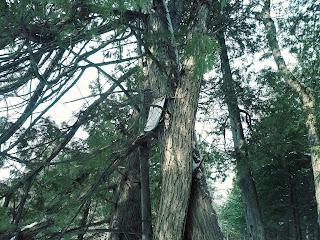Thinking about place
Kwon’s article ‘The Wrong Place’ is a very interesting read, and resonant for me as an organizer of site-specific programming and arts creation through 4elements, and in my own work as an artist. Many things to think about and say, but here are a few:
1. Regarding the observation that ‘a new spatial paradigm has developed at a faster rate than our capacity to perceive and understand it’, I’m not sure it’s a question of not being able to understand or perceive these paradigms (after all, the paradigm was not created outside of us, but through us and particular social, cultural, material relations), but that we become disoriented by what we’ve created and disconnected beyond the point of productive disconnection.
2. How much of these ‘hyperspaces’ have been produced/driven by capitalism?
3. Why are a rejection of place and a process of becoming geographically removed necessary for an artist to be effective politically, or to be avant-garde? Perhaps we need to reject an essentialized, dominant knowing, and definition, of place?
My work/life/art are engaged with a region in which land, property, treaty, boundaries, ownership, territory have distinct material, social, cultural, colonial, and political histories - one cannot engage politically by dismissing place.
What I have found to be important for my work is to think about un-settling (literally, conceptually, methodologically) place and our/my relationship to place without destroying place; making place uncanny (to use Freud’s term) but not rejecting the importance of place and belonging; understanding the systems (space?) in relation to the place; and engaging with and understanding multiple relations to place within the same geographical location. This “locatedness within a particular region” (Malpas, A Philosophical Topography p 190) necessitates understanding of positionality, historical engagement, and a commitment to place. This for me is means to engage socially, politically and ethically.



Comments